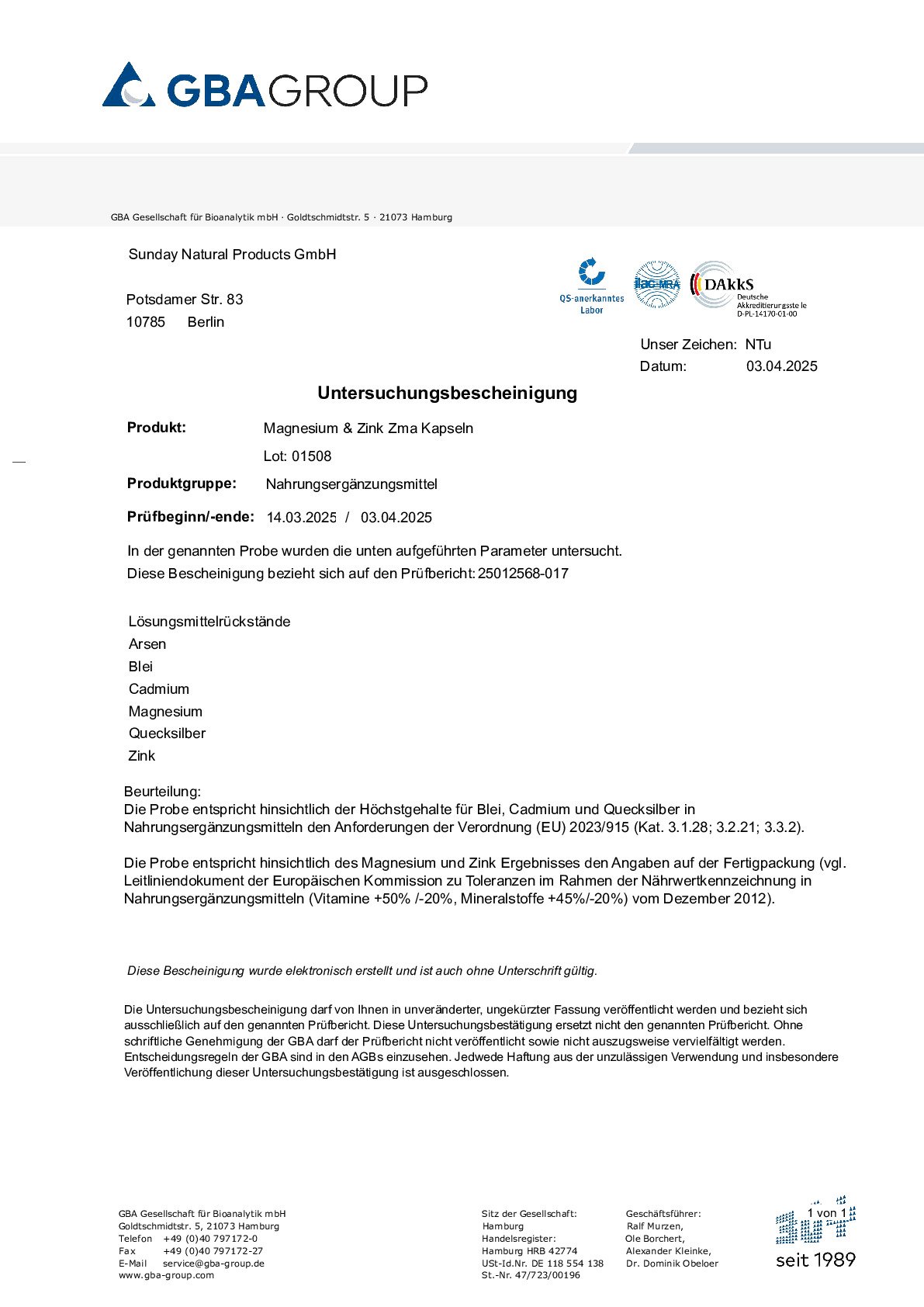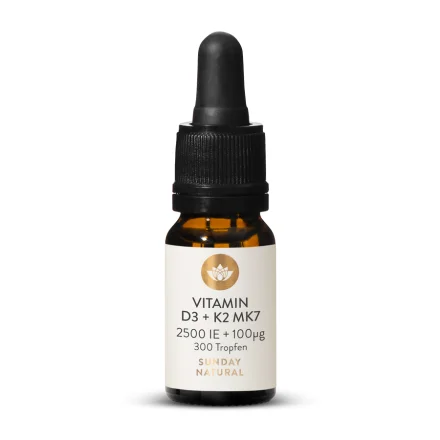Magnesium Malate
Magnesium malate is an organic compound consisting of magnesium and malic acid (2-hydroxydicarboxylic acid). The complex magnesium bond protects the magnesium itself. Malic acid is a natural fruit acid found in fruits and vegetables.
As with other magnesium compounds, the body benefits not only from the magnesium contained, but also from the effects of the binding partner. Malate is an intermediate product in the citrate cycle, the hub of metabolism and energy production, and together with magnesium, calcium and phosphorus is involved in the formation of the energy store ATP (adenosine triphosphate). The synergistic combination of magnesium and malic acid contributes to normal energy production metabolism, reduction of tiredness and fatigue and normal functioning of the nervous system.
Magnesium malate is particularly soluble in water and thus has a high bioavailability.
Zinc Bisglycinate
Zinc is a vital trace mineral that is essential for supporting the immune system, metabolism, and fertility, as well as vision, hair, and nails. Zinc can be found in meat and fish, whole grains, and legumes. Zinc that is bound to amino acids (also known as zinc chelate) has the highest bioavailability compared to other types of zinc. Moreover, the proportion of absorption-inhibiting phytate in foods can be reduced with increased protein consumption.
Zinc bisglycinate is bound to the amino acid L-glycine. According to studies, this zinc compound has the highest bioavailability.
Our zinc and magnesium capsules combine the advantages and high bioavailability of the organic compounds magnesium malate and zinc bisglycinate.
Health Benefits of Magnesium According to the European Food Safety Authority (EFSA)
Magnesium contributes to:
- A reduction of tiredness and fatigue
- Electrolyte balance
- Normal energy-yielding metabolism
- Normal functioning of the nervous system
- Normal muscle function
- Normal protein synthesis
- Normal psychological function
- The maintenance of normal bones
- The maintenance of normal teeth
and magnesium has a role in the process of cell division.
Health Benefits of Zinc According to the European Food Safety Authority (EFSA)
Zinc contributes to:
- The protection of cells from oxidative stress
- Normal cognitive function
- Normal function of the immune system
- Normal acid-base metabolism
- Normal carbohydrate metabolism
- Normal lipid metabolism
- Normal DNA synthesis
- Normal fertility and reproduction
- Normal metabolism of macronutrients
- Normal metabolism of fatty acids
- Normal metabolism of vitamin A
- Normal protein synthesis
- The maintenance of normal bones, nails, skin and hair
- The maintenance of normal vision
- The maintenance of normal testosterone levels in the blood
and zinc has a role in the process of cell division.





























